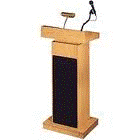
Discipline-Based Education Research Group Speaker Series
Date of this Version
10-27-2016
Document Type
Presentation
Citation
DBER Group Discussion on 2016‐10‐27
Abstract
When we make changes to a course, we want to know if they "worked." There is often a desire to broaden the definition of success beyond student (passing) grades. We know from research that the further students go in mathematics, their attitudes toward and beliefs about mathematics get more and more negative. Thus, if we slow or even reverse that trend, we might then claim success for our reform efforts. Research teams at the University of Colorado Boulder created the CLASS: Colorado Learning Attitudes about Science Survey; this was originally designed for undergraduate physics, then later adapted for use with mathematics, biology, and chemistry. More recently, our research team has revised and adapted this instrument to create CALCS: Collegiate Active Learning Calculus Survey. I will discuss both methodology (how we went about revising the instrument) and results (how we are learning about student attitudes toward mathematics).
Included in
Curriculum and Instruction Commons, Educational Methods Commons, Higher Education Commons, Science and Mathematics Education Commons


Comments
Copyright (c) 2016 Wendy Smith